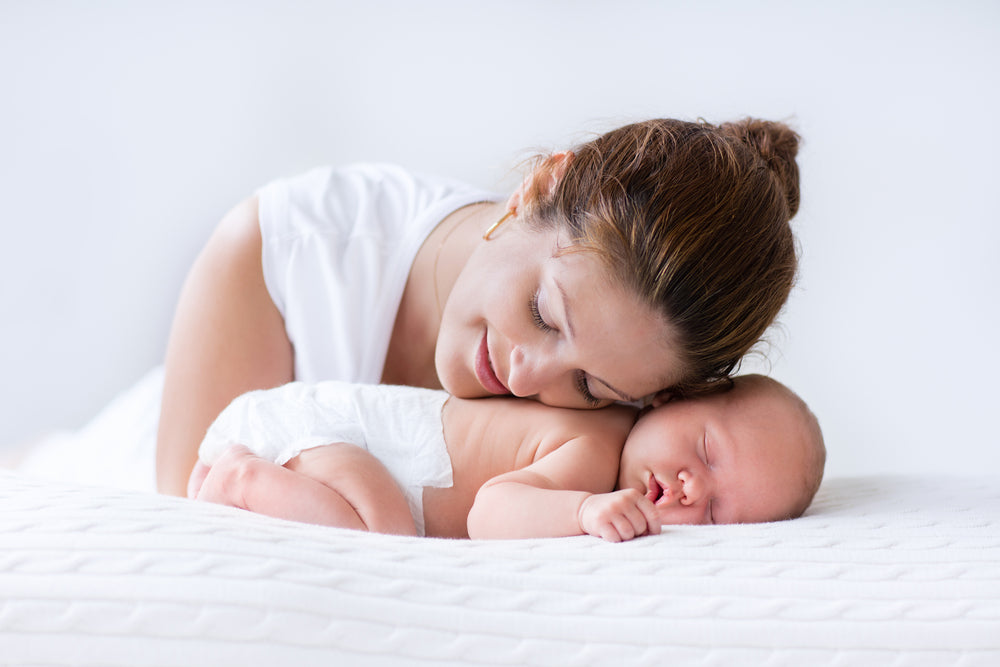Preserve Your Fertility: Egg Freezing in London at a Private Fertility Clinic
WE'VE Featured in:




What is egg freezing treatment?
If you are concerned about preserving your future fertility, egg freezing, also called Oocyte Cryopreservation, is a safe and effective method of safeguarding your ability to have a baby at the right time for you.
We offer free 20-minute complimentary call with our customer care team to anyone considering egg freezing treatment with us.
It’s the perfect opportunity to ask any questions regarding your egg-freezing journey and the treatment options available to you.
We can discuss your specific needs and create a tailored treatment plan to suit your individual circumstances. Our patients receive comprehensive support, medical assessments and ongoing personalised care.

Why do women freeze their eggs?
You might not have found the right partner yet or may be focusing on your career.
If you know you aren't ready to have a baby yet but don’t want to worry about your age affecting your ability to have a child when you are ready, egg freezing is a way to preserve future fertility.
There are also medical reasons to consider egg freezing. Some medical conditions can affect a woman’s ability to get pregnant.
Radiotherapy or chemotherapy treatments can both affect fertility. Conditions such as endometriosis may affect the health of the ovaries and can have a negative impact on overall fertility.
What is the Egg Freezing Process?
Initial Consultation & Assessment
The journey begins with a consultation with a fertility specialist. During this session, your medical history, hormone levels, and ovarian reserve are assessed through blood tests and ultrasound scans to provide us with a better understanding of your current ovarian reserve and fertility status.
Ovarian Stimulation
To increase the number of eggs available for freezing, you’ll undergo a course of hormonal injections to stimulate your ovaries. This typically lasts around 10–14 days and is monitored closely with regular scans and blood tests to track your response with your fertility team beside you.
Egg Collection Procedure
Once your eggs are ready, they are retrieved in a minor outpatient procedure called egg collection. This is performed under sedation and involves using a fine needle guided by ultrasound to collect the eggs from your ovaries. The process usually takes around 20–30 minutes.
Freezing the Eggs
After collection, your eggs are carefully evaluated in the laboratory. Mature, high-quality eggs are frozen using a process called vitrification. This rapid freezing technique ensures minimal ice crystal formation, preserving the integrity of the eggs for future use.
Egg Storage
Your frozen eggs are stored in a secure and temperature-controlled environment, ready to be used when you decide to pursue pregnancy. Healthy eggs can remain frozen for many years without compromising their quality. Eggs remain safely preserved, offering peace of mind.
Follow-Up & Next Steps
The process is designed to be as comfortable & supportive as possible, with fertility specialists & clinic staff guiding you every step of the way. If you have further questions or decide to use your frozen eggs, we're here to discuss the best options for your future family plans.
Still have questions about egg freezing? To learn more about our clinic and the services we offer, visit our About Us page and discover how we can support your fertility journey.

Egg-freezing UK success rates
Birth rates from frozen eggs are increasing at 18% per treatment cycle, according to HFEA data, contributing to improved pregnancy rates over time. Live birth rates are affected by various factors, the most significant being the age at the time of collection and the number of eggs frozen. Proper storage of eggs is crucial for maintaining quality and viability over time.
The most critical factor that affects the success rates of egg freezing is the age of the women at the time of freezing. That’s because there is a steep decline in female fertility over the age of 35, which impacts both natural conception and IVF success rates. The age of thawing the eggs does not seem to influence the outcome significantly.

What is the best age to freeze your eggs?
Success rates for egg survival after the thaw cycle are also affected by age at the time of collection. For those women who have eggs frozen before the age of 36, there is a 95% success rate of survival, which declines to 85% when the eggs are collected after the age of 36.
Therefore, the likelihood of a successful outcome following egg freezing is based on the age at the time of freezing one’s eggs. Freezing eggs before your early 30s would be the ideal time to have the best chance of a successful pregnancy in the future.
When one freezes later in life, the egg freezing process may be more invasive and expensive due to the natural decline in fertility, as more cycles may be needed to collect the desired number of eggs. Understanding the potential risks and success rates of each cycle of egg freezing can help in making an informed decision about your fertility preservation.
FAQs
Egg freezing, also called oocyte cryopreservation, is a fertility preservation technique. It involves collecting a woman’s eggs, then freezing and storing them so they can be used later when she’s ready to try for a baby. This allows more control over timing of pregnancy.
Women may consider egg freezing for social reasons (e.g. delaying pregnancy for career, not yet meeting partner) or medical reasons (e.g. prior to radiotherapy/chemotherapy, or medical conditions like endometriosis).
The earlier the better. The younger the woman at the time of egg collection, the higher the chance of good quality eggs and successful pregnancy later. While there's no fixed “best age,” freezing before the early 30s is often recommended. After about 35, fertility declines more steeply, which can lower success rates.
- Assessment & Consultation: Hormone tests, ultrasound scans, medical history review to determine ovarian reserve.
- Ovarian Stimulation: Daily hormone injections over ~10-14 days to stimulate multiple eggs.
- Monitoring: Via blood tests and ultrasound.
- Egg Retrieval: Minor outpatient procedure under sedation; eggs collected using a fine needle.
- Freezing (vitrification): Mature eggs are rapidly frozen to preserve quality.
Storage: Eggs kept in secure, temperature-controlled environment until you decide to use them.
Success depends on several factors, especially age at freezing and number of eggs retrieved / stored. For example, egg survival after thawing is high (≈ 95%) for those who freeze before age 36, but declines thereafter. Live birth rates vary: younger age at freezing gives higher probability.
Most risks are mild. Possible side effects include hormonal changes, bloating, soreness at injection sites. During egg retrieval: grogginess, mild bleeding, abdominal cramping. Serious risks are rare, such as infection or ovarian hyperstimulation syndrome (OHSS). The clinic generally takes steps to minimize risk.
You might be eligible for NHS-funded egg freezing if undergoing medical treatments like chemotherapy that could harm fertility. But for “social” reasons (i.e. not yet ready for pregnancy for personal/career reasons), NHS does not typically cover egg freezing — most social egg freezing treatments in the UK are self-funded.
Costs vary depending on location, clinic, how many cycles of stimulation are needed, storage duration, etc. IVF Matters offers transparent pricing and payment plans (“buy now pay later” options, instalments) to make treatment more accessible.
Frozen eggs can be stored for many years without significant loss of quality. There is no known upper age limit for storage, though the woman’s age at retrieval (not thawing) is what most influences outcomes.
When you’re ready: the eggs are thawed, fertilised (often using ICSI – intracytoplasmic sperm injection), then embryos are cultured in the lab, and one or more embryos are transferred into the uterus. Success depends on egg quality, sperm quality, and other health factors.
Under UK law, eggs can usually be stored for up to 55 years, provided consent forms are updated every 10 years. This allows long-term fertility preservation while ensuring compliance with HFEA (Human Fertilisation and Embryology Authority) regulations.
Yes. Before freezing eggs in the UK, you must complete HFEA consent forms. These cover how long eggs are stored, what happens if something happens to you, and whether eggs can be used in donation or research.
If you change your mind, you can choose to donate eggs to another person or for research, provided you gave prior written consent through HFEA forms. Egg donation is strictly regulated in the UK.
Yes, anyone who is medically fit can undergo egg freezing. However, access to NHS funding is usually limited to those facing fertility-threatening medical treatments. For “social egg freezing,” the process is self-funded at most UK clinics.
The number varies with age. Generally, freezing 15–20 mature eggs before the mid-30s is recommended to maximise the chance of one live birth. Older women may need more eggs to achieve similar success rates.
Yes. Egg retrieval does not usually affect your natural fertility or reduce the number of eggs you release each month. Risks are minimal when performed at a licensed UK fertility clinic.
Advances in vitrification (fast-freezing technology) mean frozen eggs now have very high survival rates when thawed — almost comparable to fresh eggs. However, outcomes depend on your age at freezing.
All treatments are carried out under strict HFEA confidentiality rules. Your personal and medical information is secure, and consent is required for any use beyond your own fertility treatment.
At IVF Matters and other UK clinics, you will be supported by a dedicated care team, including fertility specialists, nurses, and counsellors. Counselling is offered to ensure you feel fully informed before starting.
Yes, in many cases. Eggs can be transported internationally, but it involves strict logistics, legal paperwork, and coordination between licensed UK clinics and overseas centres.

Bridging the Gap Between Dreams and Parenthood
Our Medical Director Dr Irfana Koita takes the time to get to know her patients and their specific needs. This personal attention by the physician is the number 1 rule of our clinic.
Dr Koita is a fellow of the prestigious Royal College of Obstetricians and Gynaecologists (FRCOG), has done a Masters in Healthcare Leadership, from Cornell University, USA and had trained in Assisted Conception at Kings College Hospital, London. She has over 18 years of clinical experience and is recognised nationally as an expert in her field.
Watch Jess Wright's Review

A NEW WAY TO PAY FOR EGG FREEZING TREATMENT
Buy Now Pay Later
Payments in instalments. Soft credit checks! Quick applications! Select at checkout.
Our Success Stories
"It took me almost three years to decide to do egg freezing and Dr. Koita was encouraging and supporting throughout the process. This is not an easy thing to do and it helps to have another woman as support (this felt really important to me as a female PoC). It was easy to get support and ask questions over text and video calls."

Why choose IVF Matters
We offer consultant led, personalised one-to-one care both online and in-person to ensure you have a successful outcome.
We have no waiting list, and our patients range from those wanting private fertility care on a self-funded basis to those using our unique fertility finance plans to pay in installments.
Whether you’re just starting to explore your options or are ready to begin your egg freezing journey, we provide comprehensive support, cutting-edge treatments, and a patient-focused approach that sets us apart.
Take the first step with IVF Matters and discover why we are the trusted choice for egg freezing in London. Visit our About Us page to learn more about our clinic, or book a free advisory call with our specialists today

Your next steps
We know that freezing your eggs can seem like a daunting process, and you may not know where to start - but we're here to support you every step of the way.
Schedule an informal 20-minute video call with our customer success team. This advisory call is free of charge and there is no commitment.
Start your exciting journey!
Get in Touch
Our Location
Our Payment Plans

Monthly payments over 12 months

Monthly credit card payments over 6 months

Monthly payments up to 7 years




